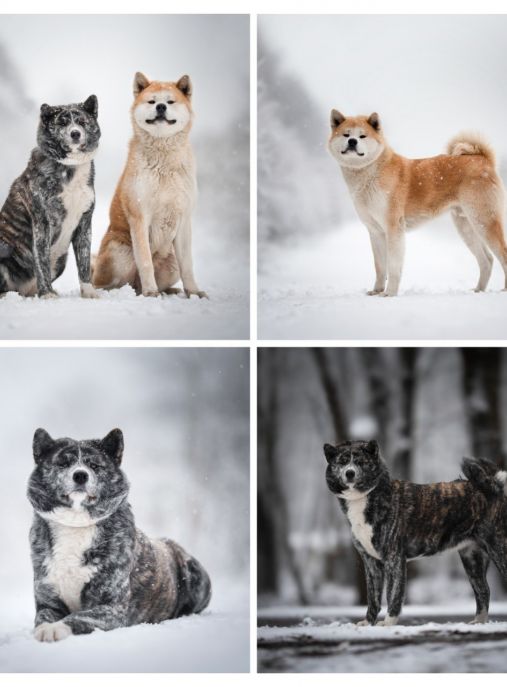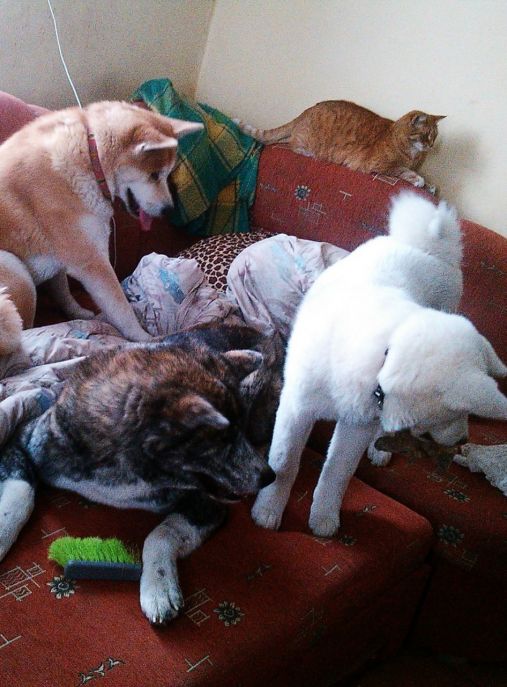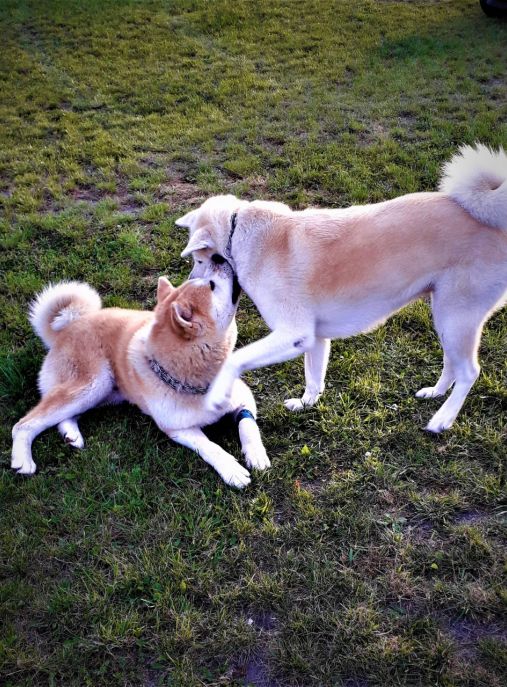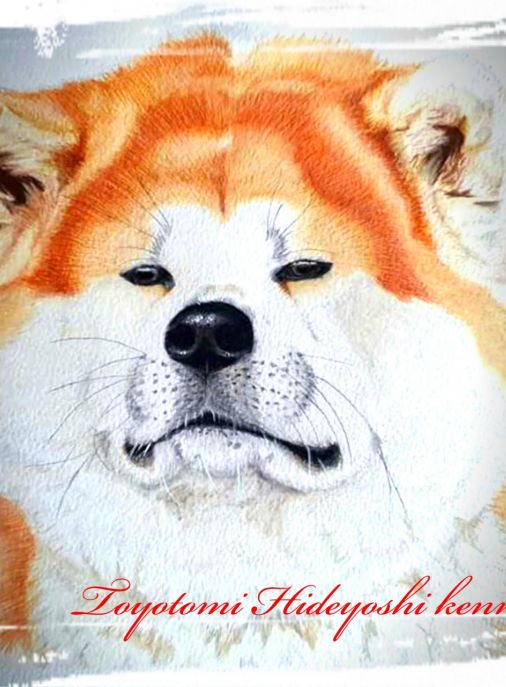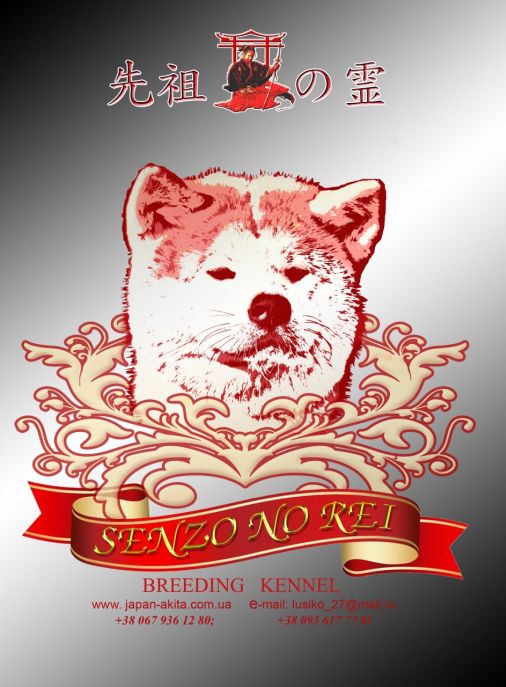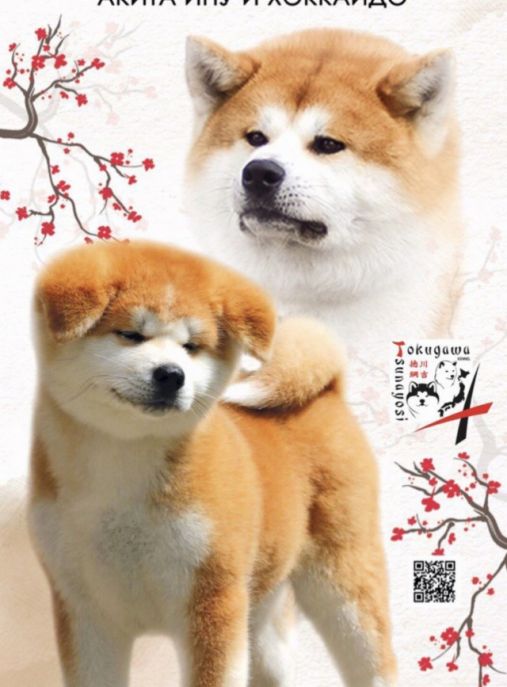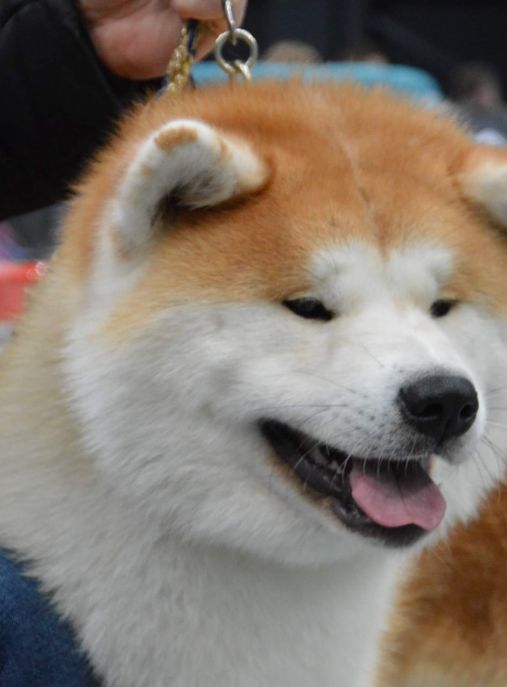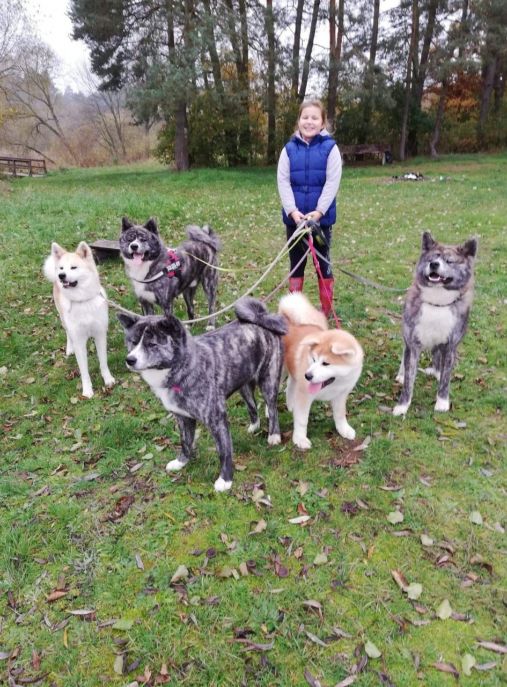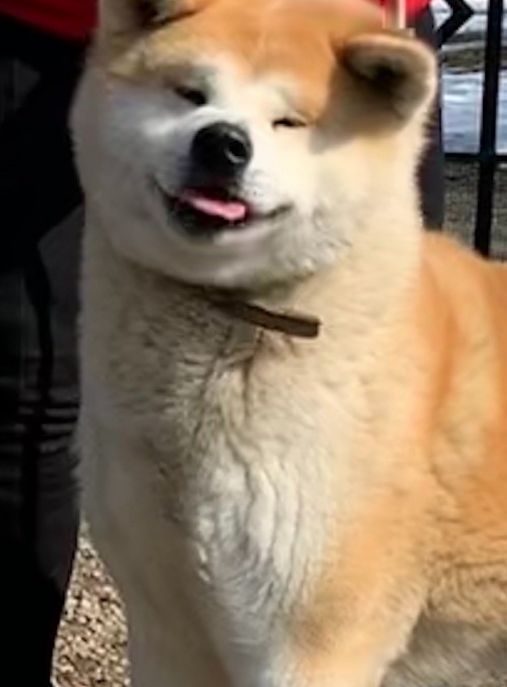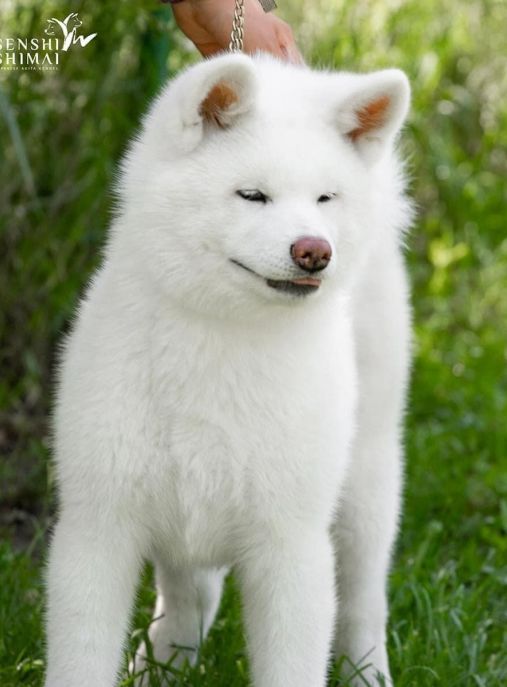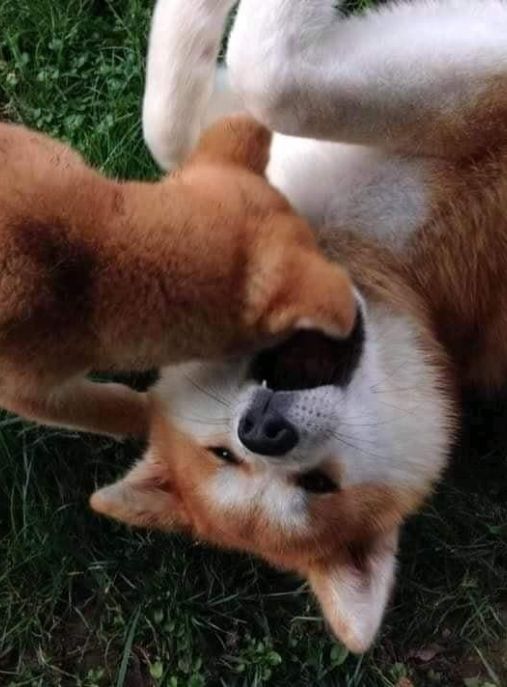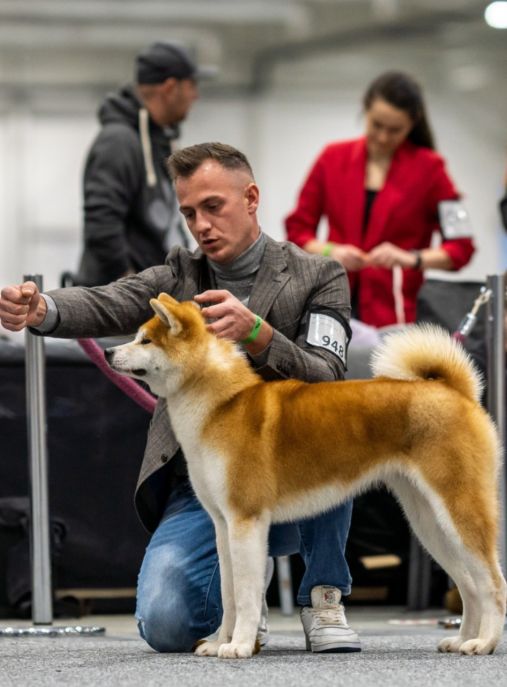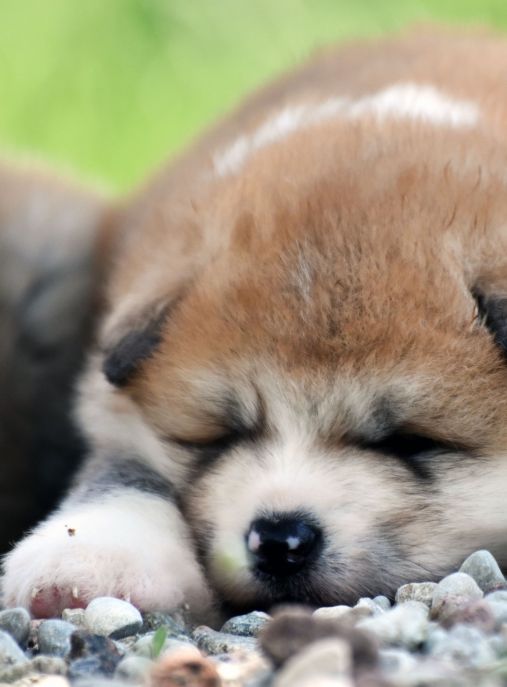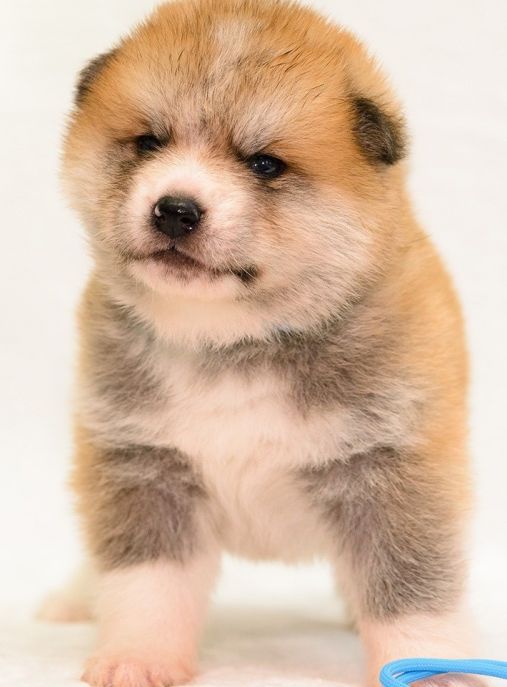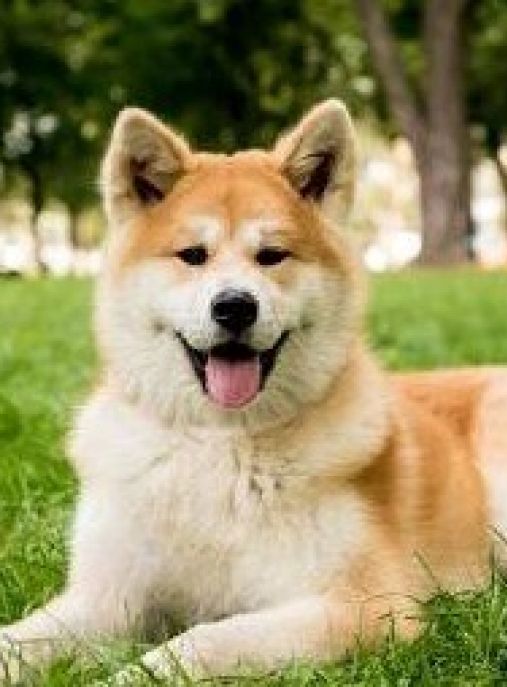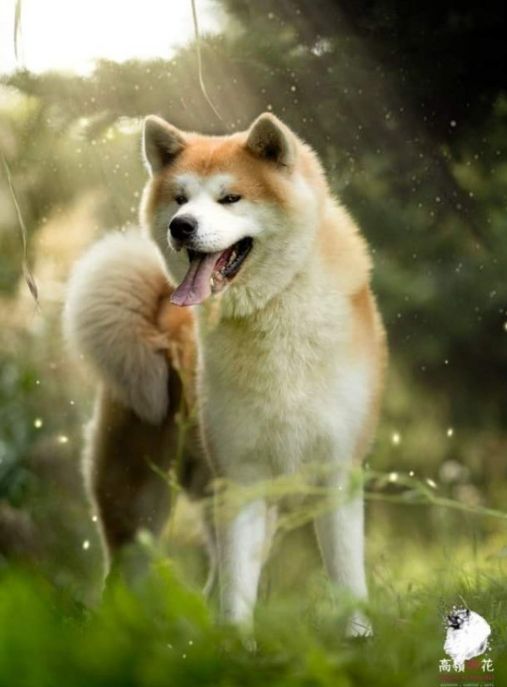Akita (also known as Japanese akita or akita inu / shishu inu) is the largest and most popular breed from Japan in the world. Its beginning is estimated at the 17th century. This dog was bred as a hunting dog for deer and wild boras, occasionally for a black bear. It was also trained for dog fights because of its exceptional courage.
Akita moves extremely fast and the fact that it comes from the polar regions means it can work in deep snow. Akita's paws are connected by a web so it is a good swimmer.
The first dogs of this breed came to the USA in 1937. Their owners, American soldiers, bred them to their own standards. As a result of their efforts, the so-called American type was created: bigger, heavier and more richly colored. In 1998, a division was made into the Japanese and the American variety.
In Japan, akita is worshiped almost as a national symbol because it is a symbol of canine loyalty. This is due to the history of the famous Hachiko dog. Every morning it saw off its owner, Eisabuiro Ueno, a professor at Tokyo University, to Shibuya Railway Station, and in the evening he would come out to greet him. One day the professor died suddenly at work. Faithful Hachiko returned to the station every day for the next 10 years, until its death in 1935. The people of Tokyo funded the dog a monument that stood in front of Shibuya Railway Station.
- Life Expectancy: 10-15 years
- Height at the withers - male: 67 cm
- Height at the withers - female: 61 cm
- Male weight: 45 kg
- Female weight: up to 30 kg
Akita is a large dog with a strong and harmonious build. It is calm, faithful and obedient. It is also a dog that has a moderate temper. Akita is not a sports dog. It does not require long walks or chasing a bicycle. If the future owner of Akita wants to take part in, for example, dog sports, he will have to be patient. This will only be possible with a gentle approach to the dog, showing strength and calmness. Akitas should not be trained as a protection dog. This breed is physically very strong and has a hidden dose of aggression that should not be triggered.
Akita is loyal and attached to the owner, but restrained in showing feelings. It is a dog that does not require cuddling, although it loves to be in the company of its owner. It is very attached to its family but is unconditionally devoted to only one person. Akita loves children and knows how to look after them, however, in the home hierarchy, children are at the very end of it. It does not tolerate children running around and raving about, and what's more, Akita will not allow itself to be tormented or harassed.
Akita does not trust strangers. It will accept them on condition that they are welcomed by its owner. It is a dog that does not bark unnecessarily. However, if something or someone appears near its house, akita will alert you to the danger with barking. Akita makes various sounds and noises. When it is happy, it starts to perform dance-like movements, bringing all kinds of household gadgets or toys. Akita has a well-developed territorial instinct, which is why it will be perfect as a watchman. Akita is interested in its surroundings and is always ready to intervene. It is a devoted friend but it will never be a service-minded dog staring uncritically at his owner. Akita is not suitable for beginners who don't know much about proper dog upbringing. The best results are achieved with consistency and invention in creating new methods of teaching the dog. Akita quickly gets bored with repetitive activities.
Akita can be independent and dominant, especially towards other dogs of the same sex. From an early age it should be properly socialized with dogs, cats and other animals.
Do not let your dog off the leash while you are walking and secure your garden properly so that the dog does not go on a lonely trip. Akita has a strong temperament and loads of energy, but will also accept a day without a long walk.
If you are looking for a dog that will be there for you, the Akita is not the best choice.
Japanese Akita does not require daily brushing. There are periods of intense shedding twice a year. It should be combed with a good comb with two rows of metal teeth. Unlike hot weather, this dog tolerates frosts well.. In summer, always provide your dog with a shaded place and cold water.
Colour of coat:
- ore
- sesame
- brindle
- white
All the above-mentioned colours of coat, except white, must have a whitish coat on the sides of the muzzle and on the cheeks, on the underside of the lower jaw, on the neck, on the chest and on the tail.
The topcoat is coarse and straight. The undercoat is soft and dense. The withers and croup are covered with slightly longer hair. The hair on the tail is also slightly longer than on the rest of the body.
The Japanese Akita is a strong and enduring dog. However, it sometimes has ophthalmic conditions such as cataracts and retinal atrophy or detachment. To avoid losing your dog's eyesight, you should have its eyes checked regularly by the vet.
There are also dysplasias, allergies of various grounds and flatulence.
Akita may also suffer from genetic diseases, incl. Sebaceous adentiti and VKH / UDS. Sebaceous adentiti is sebaceous inflammation of the sebaceous glands. VKH / UDS is a choroid-cutaneous syndrome that leads to complete blindness and loss of pigmentation.
Akita is not picky and eats little for such a large dog. If the dog is not sufficiently active, the meals may be lower in calories. Akita should be fed with high-quality food. Any improper dietary problems may lead to the deterioration of its coat and skin. A very good solution will be the Barf diet based on raw meat, cartilage bones and raw giblets, without the addition of rice, pasta or groats. You should remember about additional supplementation of your dog in the case of feeding with self-prepared meals. Before you start giving all kinds of supplements, however, it's worth talking to your vet. It is also advisable to do some basic blood tests for your dog.
